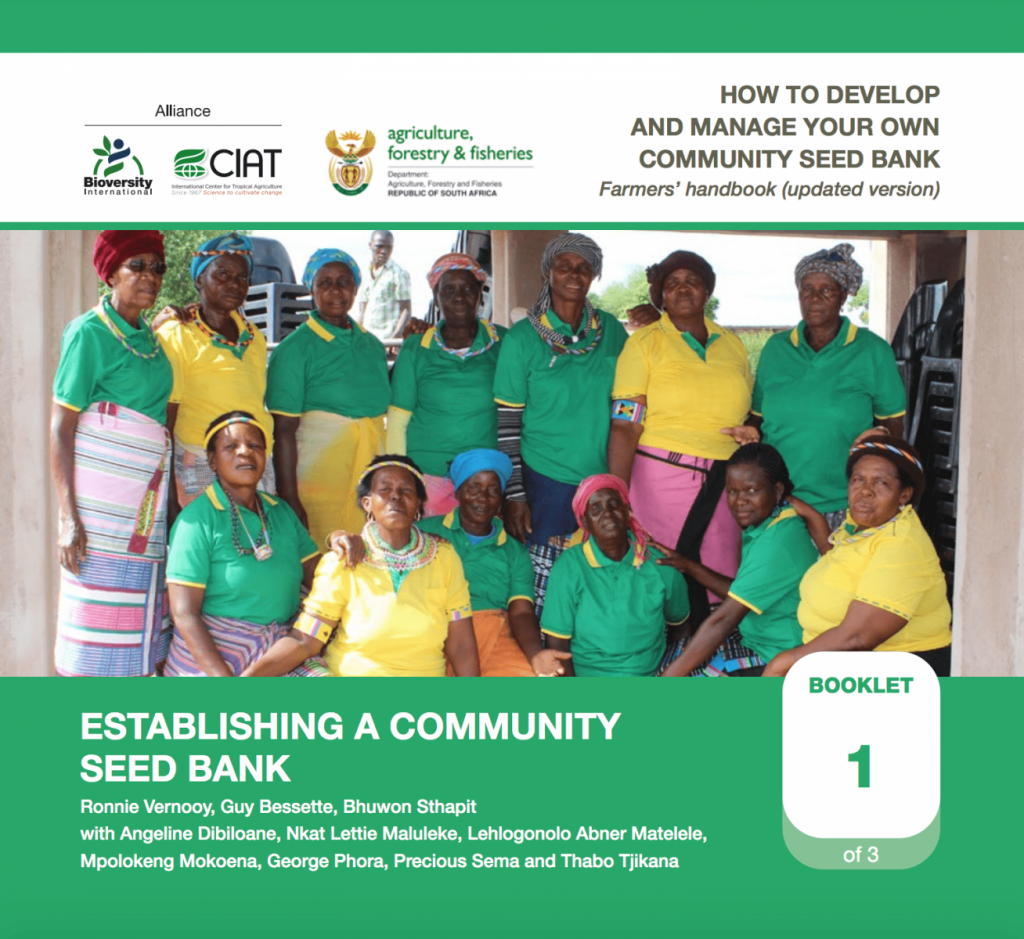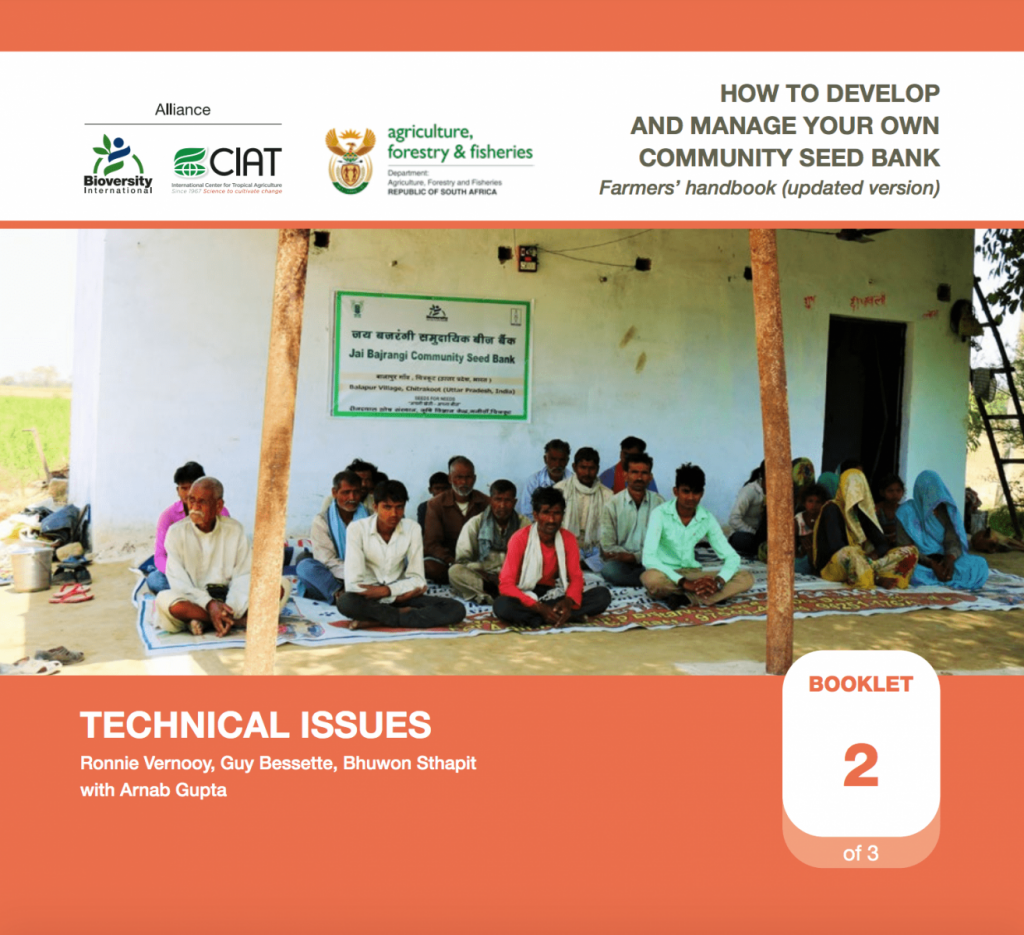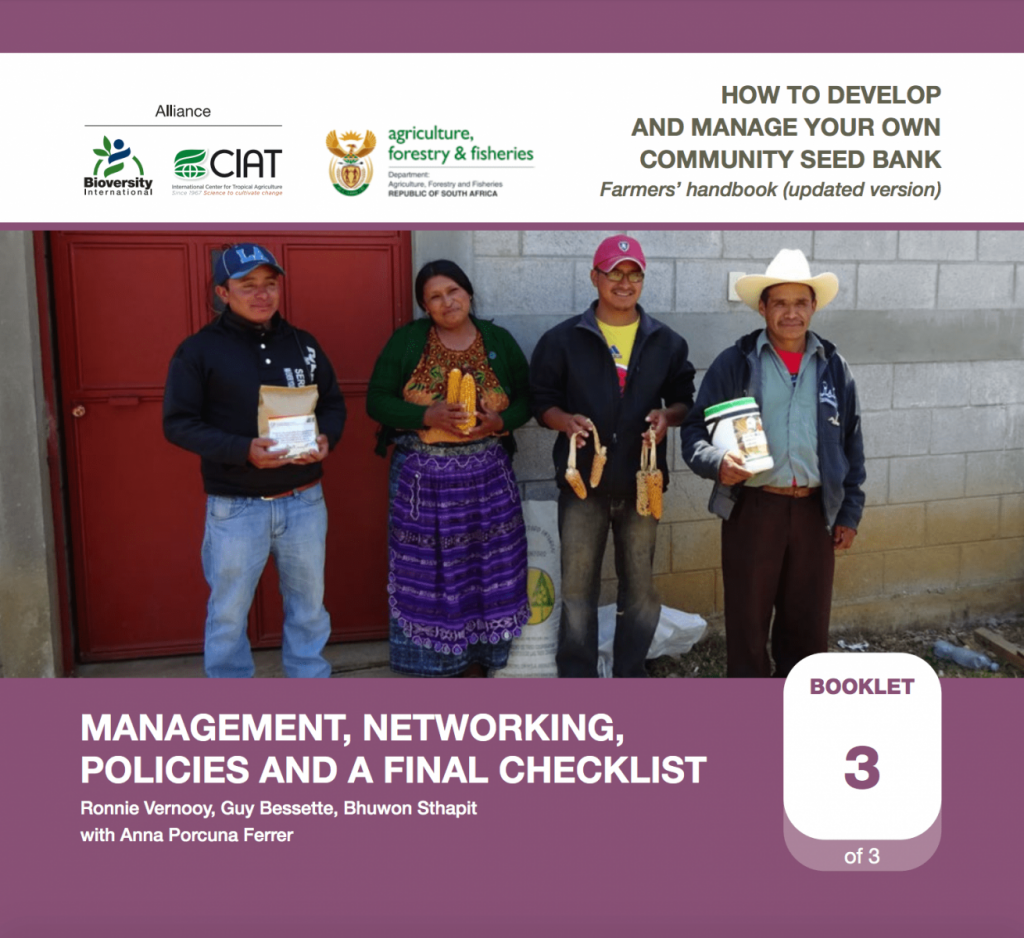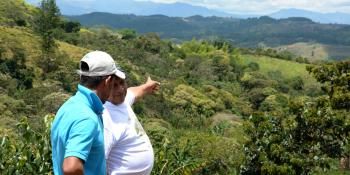Nepali community seedbanks join forces to conserve agrobiodiversity
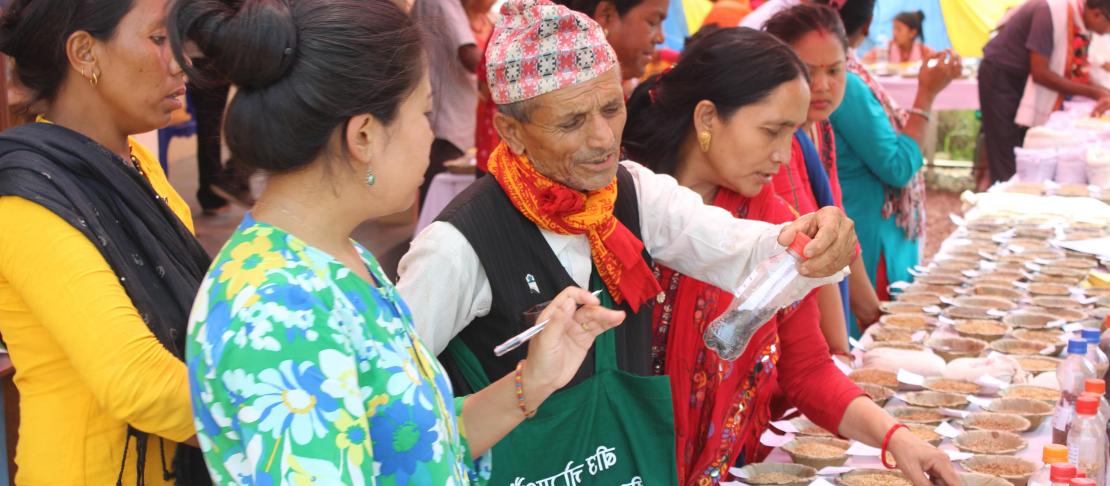
On the International Day for Biological Diversity, we celebrate community seedbanks that maintain and harness Nepal’s rich agricultural biodiversity for human health and well-being.
As the global community is called to re-examine its relationship to the natural world, one thing is certain: despite all our technological advances we are completely dependent on healthy and vibrant ecosystems for our water, food, medicines, clothes, fuel, shelter and energy, just to name a few.”
Convention on Biological Diversity on the occasion of the International Day for Biological Diversity
From the Terai plains to the hills and mountainous regions of Nepal, the loss of agrobiodiversity has contributed to major changes in agricultural livelihoods, agroecosystems and biocultural landscapes that have evolved over centuries. Food and seed security is under threat. Can community-based approaches to the management of agricultural biodiversity provide the answer?
One such approach is establishing and using community seedbanks, managed by local farming families and communities. Nepal has a long and rich history of using community seedbanks. The institutions' core function is to maintain and supply quality seeds and planting material for local use, but they can also facilitate community development and income-generating activities and collaboration with other organizations, such as extension agencies and the national genebank.
The people had forgotten about many local varieties but thanks to our community seedbanks, these seeds are available once again. People have learned the importance of cultivating these varieties. Knowledge and skills of seed production and seed handling have been increased and practices such as vermicompost and farmyard manure improvement technologies, which use less chemicals, have been promoted, leading to producing healthier food."
Naramaya Karki, a member of the Shivagunj Community Seed Bank, Nepal
Community seedbanks empower communities to manage their resources in sustainable ways, increasing food sovereignty and seed autonomy, while alleviating poverty. Women often play key roles in community seedbanks as managers, entrepreneurs and seed custodians—keeping seed diversity alive. Maintaining crop diversity on-farm not only supports their households in terms of food supply but also gives them satisfaction and community status. In some cases, it also allows them to earn incomes from selling seeds.
One-of-a-kind collaboration
Nepali seedbanks have joined forces to learn, share and support each other, beyond the community level. The recently formed and legally registered Community Seed Banks Association of Nepal (CSBAN) represents, promotes and defends the interests of all community seedbanks in the country. It supports the production and marketing of local farmers’ varieties and facilitates access to seed technologies, equipment and tools. With a growing realization among local and provincial governments of the importance of community seedbanks, CSBAN is receiving national recognition for their contribution to promote conservation and use of agricultural biodiversity. This is based on the complementary functionality of community seedbanks, which, together with the National Genebank, could constitute a national crop conservation system.
The contribution of community seedbanks for conserving local varieties cannot be compared with any other work; agriculture research will be incomplete if we do not have local varieties.”
Dr. Krishna Kumar Mishra, Chief of the National Genebank
CSBAN has developed an online seed catalogue of local varieties available from its members and accessible through a novel mobile app 'Our Seed'. It has also developed a novel method to categorize community seedbanks using a five-star classification system, which aims to value, reward and encourage community seedbanks to develop their capacities.
With its vision of maintaining and harnessing Nepal’s rich agricultural biodiversity for human health and well-being, CSBAN is probably the first such association anywhere in the world.
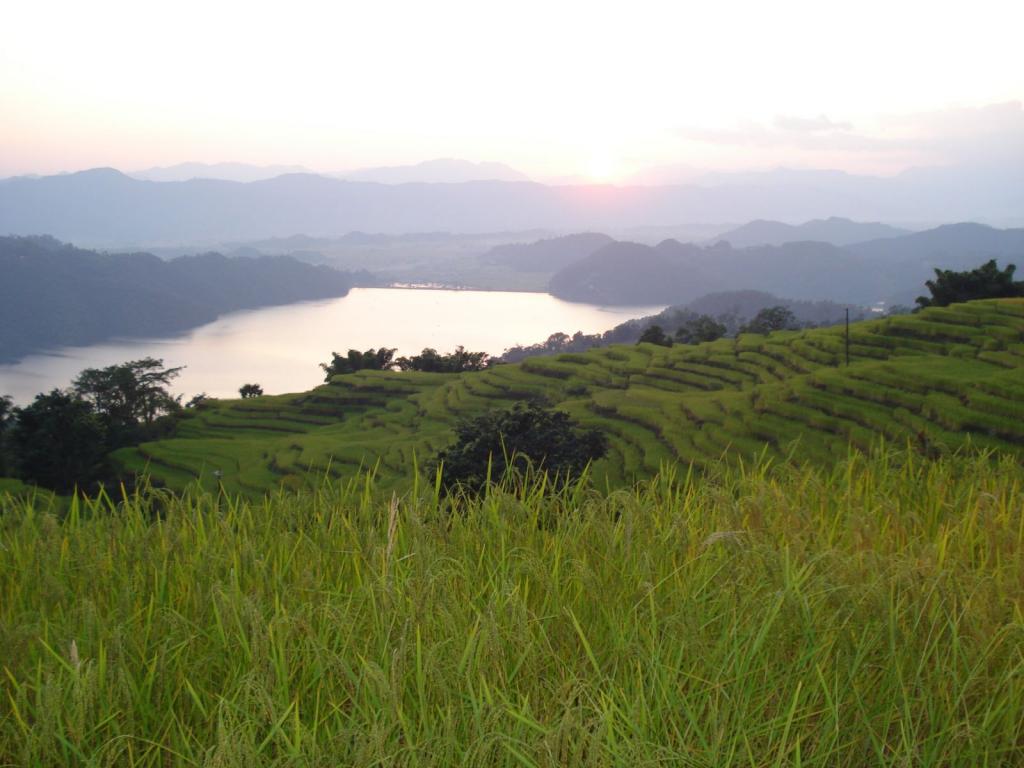
Rice terraces with all local varieties in Nepal. Photo: Pitambar Shrestha (LI-BIRD)
CSBAN wishes to expand its activities to promote on-farm management of agricultural biodiversity and to develop a community seedbank self-financing mechanism, with a pilot on marketing of local produce. Joining forces has raised these Nepali community seedbanks to a new level and they continue to inspire other community seedbanks around the world. It is hoped that one day a global system of community seedbanks will be recognized for their contribution to food and seed security, sustainable livelihoods and resilience.
Read more:
- Brief: A level up: Community seed banks in Nepal join forces
- Brief: Supporting community seedbanks to realize farmers’ rights
- Brief: Realizing farmers’ rights through community-based agricultural biodiversity management.
- Book: Community seed banks: concept and practice. Facilitator handbook (updated version)
- News: A Resilient Seed Systems Handbook to support farmers adapt to climate change
- News: Exchange of Local Seed Among Terai-based Community Seed Banks in Nepal
- News: Farmers’ rights in practice: contributions of community seed banks
- Set of booklets (see below): How to develop and manage your own community seed bank: Farmers’ handbook (updated version)
|
|
|
The research on seed commons in Nepal contributes to the CGIAR Program on Policies, Institutions and Markets (PIM), led by the International Food Policy Research Institute (IFPRI) and the CGIAR Research Program on Climate Change, Agriculture and Food Security (CCAFS).
Support for community seedbanks in Nepal has been provided by many organizations, including Local Initiatives for Biodiversity, Research and Development (LI-BIRD), Nepal, USC-Canada (recently renamed SeedChange), Development Fund of Norway and Bioversity International, part of the Alliance of Bioversity International and CIAT. Additional support to establish and strengthen CSBAN has been provided through the Seeds, Soil, Culture Fund managed by RSF Social Finance with the support of the New Field Foundation.
Evelyn Clancy is a Project Management Officer at the Alliance of Bioversity International and CIAT. Pitambar Shrestha is the Programme Operations Director at the Local Initiatives for Biodiversity, Research and Development (LI-BIRD). Ronnie Vernooy is a Genetic Resources Policy Specialist at the Alliance of Bioversity International and CIAT.

